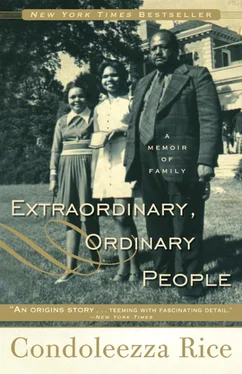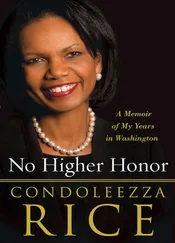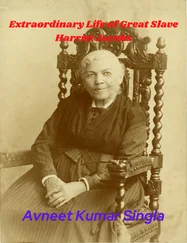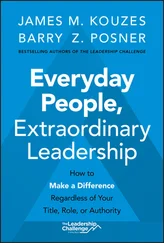QUESTIONS AND TOPICS FOR DISCUSSION
1. Discuss the memoir’s title. What led John and Angelena and their ancestors to strive for excellence? What gave them the drive to rise above the ordinary? What family legacies have shaped your identity?
2. How did Rice’s book enrich your understanding of black society in the segregated South, especially in middle-class communities like Titusville?
3. As educators, what did Rice’s parents know about helping students excel in school? Do you think most American parents today share the Rices’ approach, determined to deliver the best possible education no matter what the obstacles are?
4. Rice observes that in some cases she was more proficient than many whites in her knowledge of European culture, from classical music to history. Why did her parents immerse themselves in European culture, despite Europe’s domination of the slave trade in previous centuries? How did her father reconcile this with his campaign to increase African studies courses at the University of Denver?
5. Discuss your family’s recollections of the Civil Rights movement. If you had lived in the shadow of Bull Connor, would you have marched with Reverend Shuttlesworth and the SCLC, or would you have worked for change in less visible ways?
6. What did you discover about Jim Crow politics by reading Rice’s book? Did John Rice’s experience with voter registration surprise you? In “College Years,” Rice writes about her dislike of identity politics and the fact that Jimmy Carter’s foreign policy caused her to favor Republicans. How does her approach to party politics compare to yours?
7. What role did faith play in the Rice family? What does it say about religion in America that Rice’s father distrusted the Kennedys because of their Catholicism and preferred an intellectual Presbyterian style of worship rather than a charismatic Baptist one?
8. How was Rice affected by being an only child? How did the three close-knit family members influence one another over the years? How were Condoleezza and John sustained after Angelena’s death?
9. Consider the tremendous sacrifices, financial and otherwise, that the Rices made for their daughter. What rewards did they hope she would reap? Was there someone in your life, not necessarily in your family, who “invested” in you in some way?
10. What prevented Rice from becoming bitter after her many encounters with racism? What sustained her love for America?
11. In “Leaving the South Behind,” Rice describes her mother’s adjustment to life in Colorado, where she had difficulty finding a job and missed the refinement of her southern friends. What did Angelena teach Rice about being a successful woman? To Angelena, what were the qualities of an ideal woman?
12. As Rice described her young professional life, what common ground did you see between the world of Stanford/Palo Alto and the world of Washington, D.C.? How did a career in academia and the think tank RAND prepare her for a career of public service?
13. What universal human experiences did Rice observe as a witness to both the Civil Rights movement and glasnost? What aspects of her life story transcend ancestry?
14. In “Tough Decisions,” Rice writes about her strong support for including race as a factor in college admissions. Do you agree with her approach? What can society and institutions do to foster even greater numbers of minorities in higher education, the foundation for stepping into a leadership role?
15. What aspects of Rice’s story surprised you the most? How does her personal voice compare to her image as a public figure?
AN INTERVIEW WITH CONDOLEEZZA RICE
Q. You were clearly a little girl who possessed a rich imagination and many creative talents. Do you think the arts can benefit all young people, regardless of the careers they choose later?
A. I have long believed that arts education is an integral and indispensible part of a school’s curriculum. I cringe when I hear music and the fine arts described as “extracurricular”—the term implies that arts education is somehow “extra” and therefore expendable when it comes to budget cuts in education. When I cofounded the Center for a New Generation in East Palo Alto, I worked to make arts education part of an extended learning day for highly motivated, underprivileged students. I am continuing that work today through my work with the Boys and Girls Clubs of America, where I serve on the organization’s national Board of Governors.
At a very early age, music became a kind of language for me. I could read music before I could read prose. Studies have shown that playing music enriches the mind just as much as it does the soul by activating regions in the brain that also appear to be used in language acquisition and mathematics. The fine arts also serve as a kind of universal language that reaches across cultures to promote common understanding and shared experiences. Every young person should have the opportunity to benefit from the kind of education that the arts are uniquely suited to provide.
Q. How did your community in Alabama define success? What do you think your success, and that of your ancestors, says about the role of nature and nurture?
A. In the face of humiliating conditions in the most deeply segregated big city in America, the adults in my community encouraged young people to become “twice as good” as their white counterparts by taking full advantage of educational and cultural opportunities offered to them. By mastering the finer elements of “white” culture even better than “they” could, the thinking was that “they” might not like you, but “they” had to respect you. The adults also reminded us that although we could not control the degrading circumstances we confronted in Birmingham, we could control our responses to them. There was no room for victims. Through a combination of education, faith, community, and family, my parents and so many others in our community inspired us to pursue our highest aspirations.
Q. You write that your father emphasized intellect when he was a minister. How has this combination of mind and spirit sustained you?
A. My father often took a cerebral approach to his ministry, partly because he himself was an educator. He encouraged me to wrestle with theological questions and to challenge him as I navigated the mysteries of my faith. Because of my father’s approach, reason and faith were not enemies of each other for me but, in fact, complementary, with each enriching the other. As I write in Extraordinary, Ordinary People , this more intellectual approach sustained me and has allowed me to experience my faith more deeply than I otherwise would have. I have been able to avoid complacency in my faith by continuing to struggle with its meaning and seek greater understanding of the spirit and promise of eternal life.
Q. What did you learn about trust and commitment from watching your parents’ marriage? What helped them endure as a couple?
A. My parents inspired me with their unconditional love and devotion to each other. As teachers, they shared a passion for education and were committed, despite their modest means, to providing me with anything that could remotely be called an educational opportunity. Even in areas where they didn’t always have common interests, they still found ways to take part in each other’s lives. My father endured long car rides full of Mozart and Beethoven, and my mother dutifully joined our outing to the family’s first professional football game—a truly watershed event. They faced many of the same challenges that ordinary couples face, but their deep commitment to each other and their only daughter allowed us to persevere through even the most difficult of circumstances. When my mother passed away at sixty-one from breast cancer, my father and I leaned on each other and our faith to remind us that she remained with us in spirit. I have felt her presence throughout my life, and I continue to feel both of them watching over me to this very day.
Читать дальше












